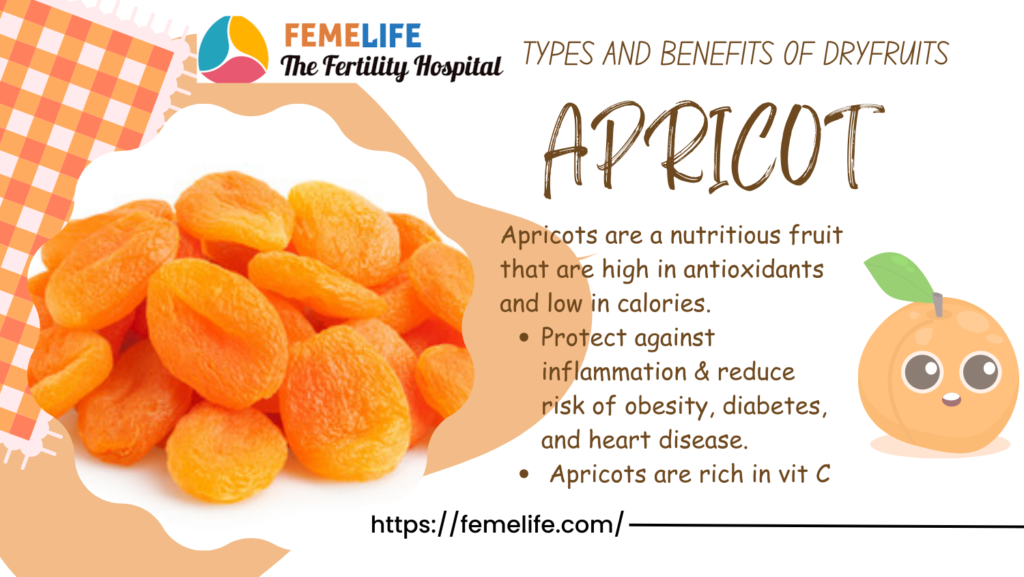Very nutritious and low in calories
Just 2 fresh apricots (70 grams) provide:
- Calories: 34
- Carbs: 8 grams
- Protein: 1 gram
- Fat: 0.27 grams
- Fiber: 1.5 grams
- Vitamin A: 8% of the Daily
Value (DV) - Vitamin C: 8% of the DV
- Vitamin E: 4% of the DV
- Potassium: 4% of the DV
Furthermore, this fruit contains beta carotene, lutein, and zeaxanthin, all of which are strong antioxidants that assist your body combat free radicals.
High in antioxidants
Apricots are high in antioxidants such as beta carotene and vitamins A, C, and E.
Furthermore, they are high in flavonoids, a type of polyphenol antioxidant that has been demonstrated to protect against diseases like as diabetes and heart disease.
May promote eye health
Apricots include a variety of chemicals beneficial to eye health, including vitamins A and E .
Vitamin A is essential in avoiding night blindness, which is caused by a lack of light pigments in your eyes, but vitamin E is a fat-soluble antioxidant that enters your eyes directly and protects them from free radical damage.
May boost skin health
Apricots may be beneficial to your skin.
Environmental factors such as the sun, pollution, and cigarette smoke are the primary causes of wrinkles and skin damage.
May promote gut health
Apricots have soluble and insoluble fiber. The soluble kind dissolves in water and comprises pectin, gums, and polysaccharides, whereas the insoluble type does not dissolve in water and includes cellulose, hemicellulose, and lignin.
Very hydrating
Apricots, like other fruits, are naturally high in water, which can aid in the regulation of blood pressure, body temperature, joint health, and heart rate.
Because most people do not consume enough water, eating fresh fruit might help you meet your daily requirements.
